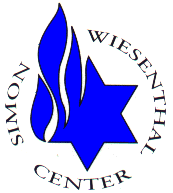

The Simon Wiesenthal Center proudly presents:
How Thousands of SS Found a Safe Haven In North America
Speaker: Sol Littman, Simon Wiesenthal Center's Canadian DirectorSol Littman's trailblazing investigative work on how Canada became a safe haven for thousands of members of the Waffen-SS spans three decades and two continents. Hear his riveting expose at this special MOT event.
Co-sponsored by MOT Volunteer Council
WHEN: Sunday, August 31 WHERE: Simon Wiesenthal Center, Los Angeles, CA TIME: 9:30pm CT